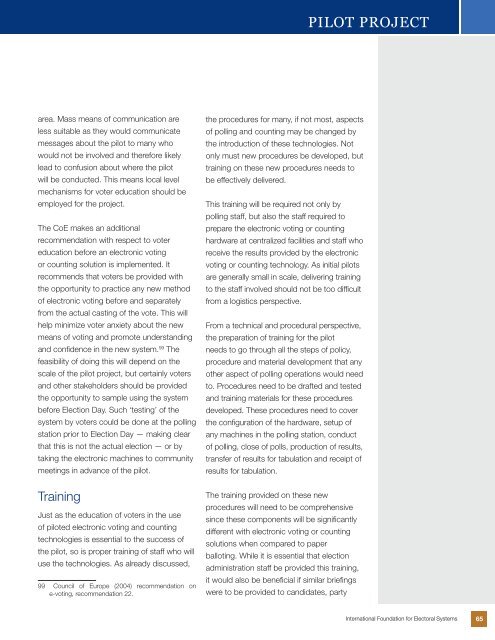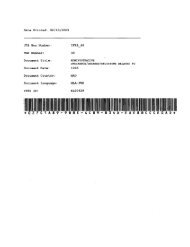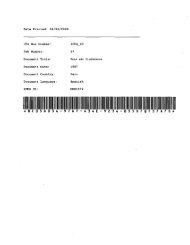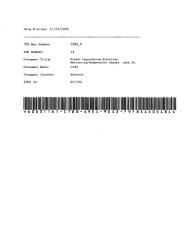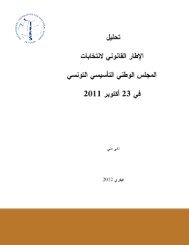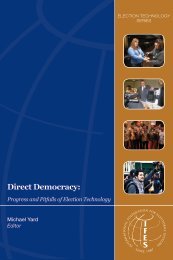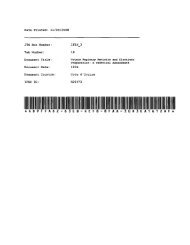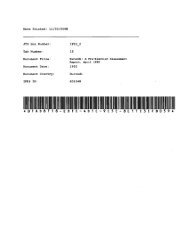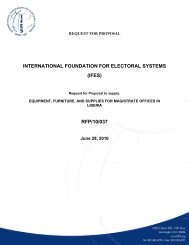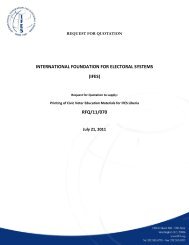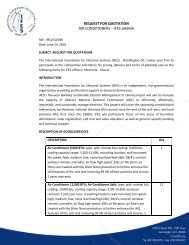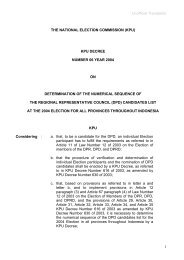Electronic Voting & Counting Technologies - IFES
Electronic Voting & Counting Technologies - IFES
Electronic Voting & Counting Technologies - IFES
- No tags were found...
Create successful ePaper yourself
Turn your PDF publications into a flip-book with our unique Google optimized e-Paper software.
INTERNATIONAL ELECTORAL PILOT STANDARDS PROJECTarea. Mass means of communication areless suitable as they would communicatemessages about the pilot to many whowould not be involved and therefore likelylead to confusion about where the pilotwill be conducted. This means local levelmechanisms for voter education should beemployed for the project.The CoE makes an additionalrecommendation with respect to votereducation before an electronic votingor counting solution is implemented. Itrecommends that voters be provided withthe opportunity to practice any new methodof electronic voting before and separatelyfrom the actual casting of the vote. This willhelp minimize voter anxiety about the newmeans of voting and promote understandingand confidence in the new system. 99 Thefeasibility of doing this will depend on thescale of the pilot project, but certainly votersand other stakeholders should be providedthe opportunity to sample using the systembefore Election Day. Such ‘testing’ of thesystem by voters could be done at the pollingstation prior to Election Day — making clearthat this is not the actual election — or bytaking the electronic machines to communitymeetings in advance of the pilot.TrainingJust as the education of voters in the useof piloted electronic voting and countingtechnologies is essential to the success ofthe pilot, so is proper training of staff who willuse the technologies. As already discussed,99 Council of Europe (2004) recommendation one-voting, recommendation 22.the procedures for many, if not most, aspectsof polling and counting may be changed bythe introduction of these technologies. Notonly must new procedures be developed, buttraining on these new procedures needs tobe effectively delivered.This training will be required not only bypolling staff, but also the staff required toprepare the electronic voting or countinghardware at centralized facilities and staff whoreceive the results provided by the electronicvoting or counting technology. As initial pilotsare generally small in scale, delivering trainingto the staff involved should not be too difficultfrom a logistics perspective.From a technical and procedural perspective,the preparation of training for the pilotneeds to go through all the steps of policy,procedure and material development that anyother aspect of polling operations would needto. Procedures need to be drafted and testedand training materials for these proceduresdeveloped. These procedures need to coverthe configuration of the hardware, setup ofany machines in the polling station, conductof polling, close of polls, production of results,transfer of results for tabulation and receipt ofresults for tabulation.The training provided on these newprocedures will need to be comprehensivesince these components will be significantlydifferent with electronic voting or countingsolutions when compared to paperballoting. While it is essential that electionadministration staff be provided this training,it would also be beneficial if similar briefingswere to be provided to candidates, partyInternational Foundation for Electoral Systems 65


